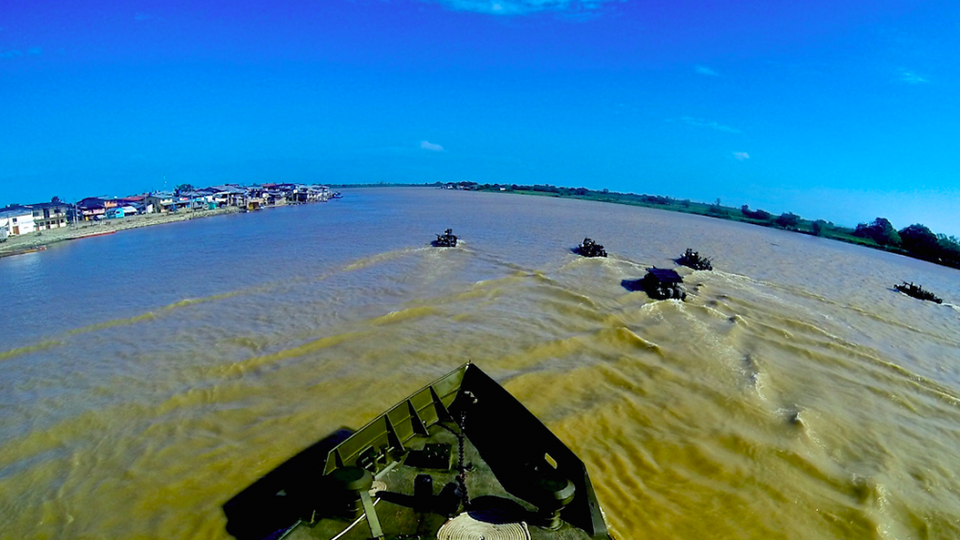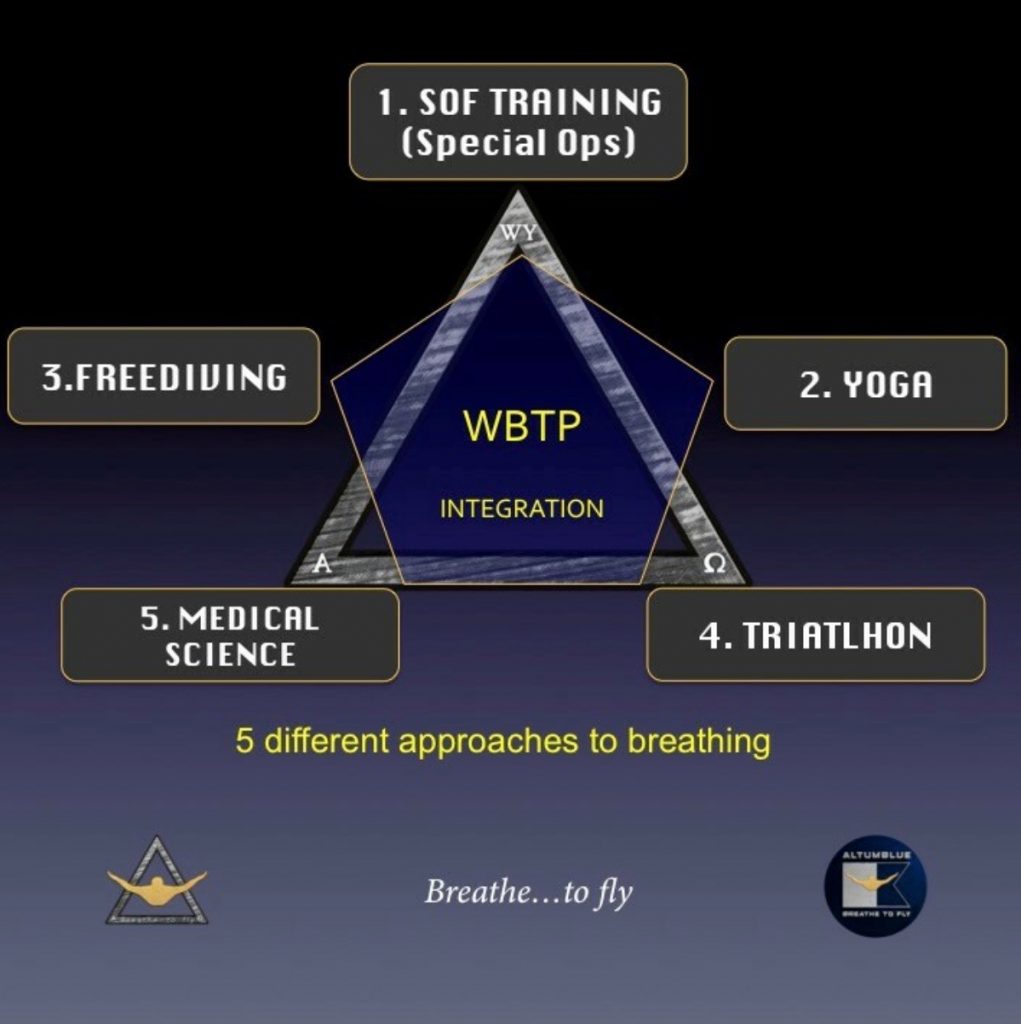Improved Respiration, a Proactive Reaction to the Emerging Events of Today’s World
How to prepare to the Emerging Events of Today’s World
“Under pressure, you don’t rise to the occasion, you sink to the level of your training.”
-US NAVY SEALS
“By Presidential Mandate, it is necessary to suspend military operations in two quadrants of your jurisdiction”, was the instruction given over the radio by the Commander of the Joint Task Force TITAN in 2014. The order seemed implausible, since the work team of WOLFPACK BFIM16 (how the team fraternally called the members of the Marine Corps Riverine Battalion No.16).
This team dedicated a 24/7 effort to transform this Tactic Unit into a forceful elite brotherhood of warriors ready to fight of, even to the death, any terrorist threat in order to protect the interests of Colombians in Chocoan Urabá. The historical context at the time includes the peace dialogues between the Colombian Government and the terrorist organization FARC that took place between October 2012 and November 2016, at the Havana, Cuba.
By executing a well trained riverine tactic and successfully overcoming enemy attacks in the jungle of Chocó, WOLFPACK BFIM16 kept the 34th and 57th Fronts of the FARC cornered in the theater of operations. In soccer terms, it could be said that the BFIM16 (and in general the entire Military Forces) was winning 8-0 a game agreed to10 goals.
But what seems unusual must be fulfilled, clear the playing field to allow three leaders of this criminal organization, Pastor Alape, Isaias Trujillo and Rubín Morros leave the field to make presence in Havana, Cuba and reinforce the negotiating table.
Crisis scenarios like the one described above, are the stress situations a member of the Marine Corps Battalion responsible for the territorial control of an operational jurisdiction that covers 550 kilometers of the Colombian Atrato, one of the many amazing rivers in Colombia, faces on a daily basis.
In 2014, I was part of the WOLFPACK BFIM16. The subject of this article is not war, but it is worth applying some leadership lessons learned in the combat field, whose environment full of complexities and uncertainties is a generator of moments of crisis and therefore of ‘stress’.
Seeing the above, and in order to contribute to the improvement of the mission of the WOLFPACK BFIM16, I became deeply interested in managing decision-making in crisis situations. I have always been clear that rigorous training coupled with detailed planning is essential to act more safely in the face of emerging events in the execution of any plan.
Everything that is tested reduces uncertainty and in turn reduces stress. Although stress per se is a positive manifestation of our organism, when it is sustained for a long time, its implications are negative.
Thus, both in the theater of military operations and in today’s world, emerging events are permanent and cause two effects: generate stress and alter emotional control, which can negatively affect decision-making. Neutralizing the toxic effects of prolonged stress is vital, and stabilizing emotional control is also critical to maintain mental clarity in the decision-making process in crisis situations.
The solution for these toxic issues is simple and similar to the advice of our grandmothers; «Count to ten and breathe.» But the reality is that the benefits of breathing are not activated with a magic count to 10 formula and voila!
It is necessary to train systematically and progressively to achieve improved breathing and thus, be able to positively influence the control of emotions and decision-making. The reason, as we will see below, is because through good breathing practices the mind can be connected with the part of the nervous system that works without our will, and this in turn, can regulate aspects that help positive management of stress and emotions.
In the series of Breathe Like a Warrior, we identify improved respiration (IR) with the physiological action of inhaling and exhaling consciously with the greatest possible effectiveness to reach the full potential of the respiratory act. This is, to breathe well and with a high-quality technique. Developing IR means breathing calmly all the time through the nose and making the movements when inhaling and exhaling so subtly that they are imperceptible.
The part of the nervous system that works without direct control of the mind is the autonomic nervous system (ANS), which includes the parasympathetic nervous system (PNS) which in turn has a relaxing function for the body. It reduces heart rate and blood pressure, and also promotes digestion and absorption of nutrients.
The organism enters into what psychologist have baptized the «rest and digest» mode. It is particularly the PNS, which fortunately can be activated with breathing practices, and especially with those that include apnea (holding the breath).
In his book, Breatheology, The Art of Conscious Breathing, Stig Avall Severinsen claims that holding your breath for a short time and then exhaling slowly stimulates the vagus nerve and gives the body and mind a sense of peace. The vagus nerve connects from the brain to various parts of the body including the lungs, heart, and stomach.
Likewise, in the Manual of Freediving, Umberto Pelizzari, refers to an interesting study published in 2009 by Professor Angelo Geminiani, from the Department of Psychological Science at the University of Pisa, based on research carried out during a convention of freedivers in Lignano Sabbiadoro.
This publication demonstrates that during a prolonged and controlled exhalation there is a significant change in brain activity that replaces the moving beta waves with the more pleasant alpha waves. This induces a general reduction of the metabolism, starting with a decrease in heart rate, without in any way influencing the state of consciousness.
In order to take advantage of the practical effects of improved breathing, described in the previous paragraphs, one of the best Special Operations Forces in the world, the Navy SEALs, have incorporated into its training programs, breathing practices to automate a proactive reaction of its members to the emerging events of combat situations and thus remain calm and reduce stress.
«The way of the SEAL, Think Like an Elite Warrior to Lead and Succeed,» presented by Capt. Mark Divine, a former SEAL member, explains the mechanics and results of the breathing technique employed by the SEALs, Box Breathing.
“Box Breathing manages to program the body to automatically take deep breaths and improve emotional control. On the other hand, when practiced daily, the blood receives superior oxygenation with each breath, and the body takes the energy necessary to work at optimal levels, meanwhile the lungs and internal organs are detoxified, in turn the mind calms down and focus more sharply”.
The warrior Breathing Training Program (WBTP) is launched using the methodology of the military training approach system (mission analysis, the definition of essential tasks for the fulfillment of the proposed objectives, design, preparation and implementation of the training plan) used by the special operations forces (SOF) in the elaboration of its plans
The WBTP is the vehicle to achieve IR as safety training, with science-based techniques in support of the preparation of the average individual to assume superior control of the mind and body in a systematic, gradual, and progressive way.
The WBTP is a specific breathing training plan with breath-hold type of workouts; oriented to achieve improved respiration. This program has a positive effect on five essential aspects of ordinary life: leadership, mental focus, decision making, health, and physical fitness.
In conclusion, maintaining the firm search for improved respiration (taking root in a permanent culture of good respiratory practices), is the correct way to prepare the mind and body to internalize the habit of proactive reaction to the different emerging events that arise in the modern world.
Achieving improved breathing is not so easy but it is within everyone’s reach, it is a matter of working with focus, discipline and determination; train, practice and retrain. Aristotle said it well: “We are what we do repeatedly. Excellence, then, is not an act; it is a habit.»
Breathe to inspire***
Bibliography
- Severinsen, Stig Avall. Breatheology, The Art of Conscious Breathing.
- Pelizzari, Umberto. Manual of Freediving. Underwater on a Single Breath.
- Divine, Mark. The way of the SEAL, Think Like an Elite Warrior to Lead and Succeed

